Why Did They Leave? Learning From the Experiences of Former Community College Students
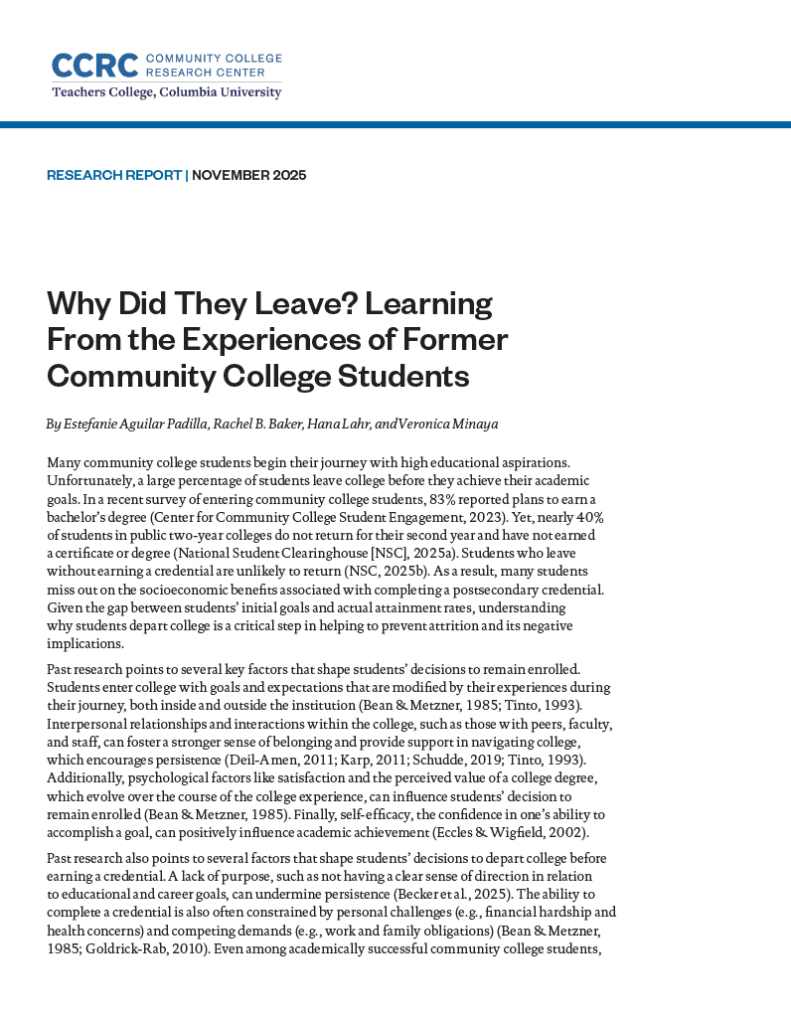
Based on survey findings from 480 former students who stopped out of community college before the start of their second year, this report sheds light on the experiences of this population and their reasons for leaving college.
Responding to the Student Voice in Dual Enrollment: Insights From Focus Group Interviews and DESSE Survey Data
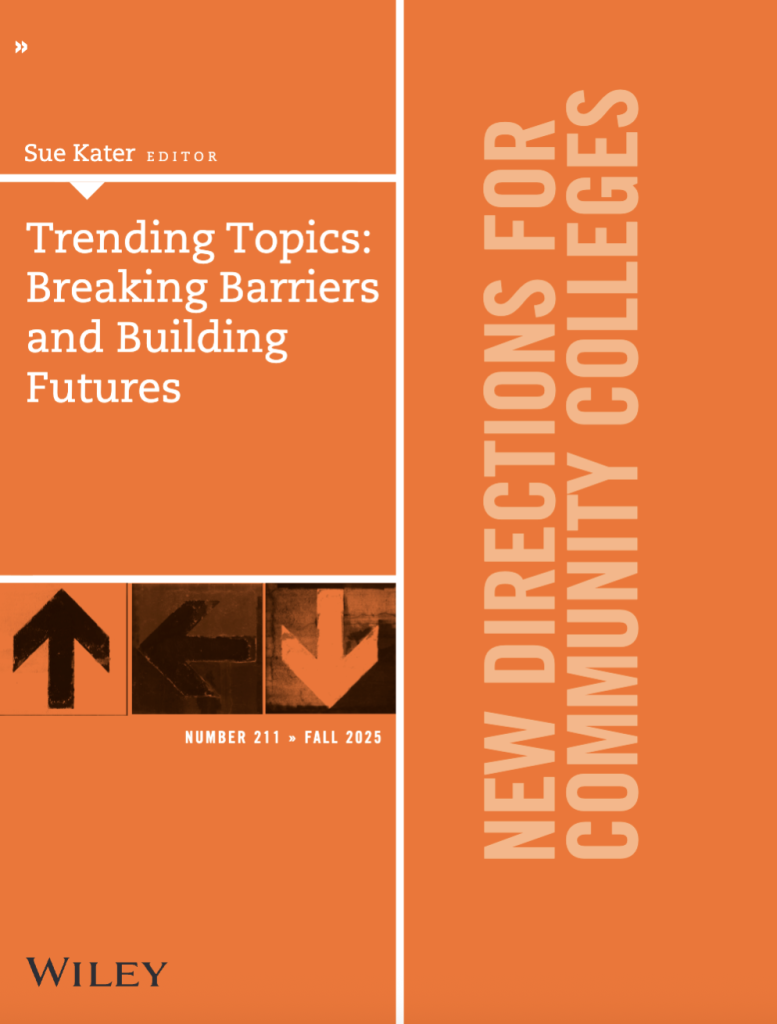
Drawing on survey and interview data, this article describes what students want from their dual enrollment experiences and implications for college and K-12 leaders working to strengthen their dual enrollment programming.
College Business Models for Scaling Purposeful Dual Enrollment
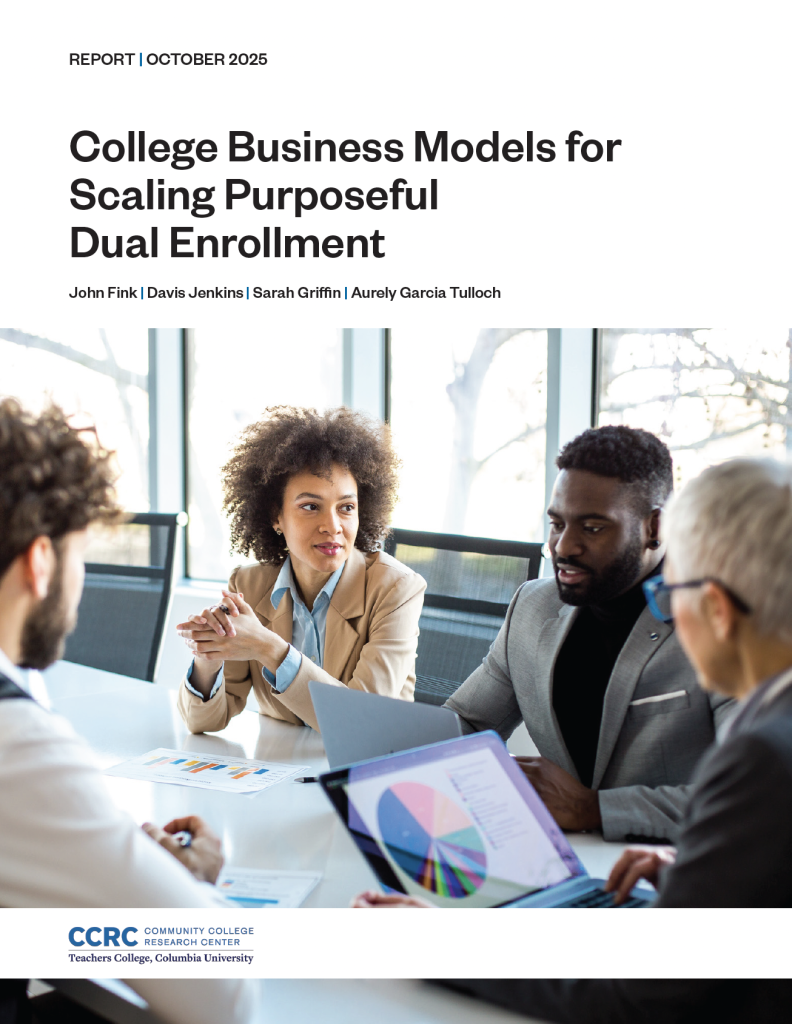
This report describes strategies for providing purposeful dual enrollment, which better guides underserved students into degree- and career-connected education after high school, without shifting the cost burden onto students and families.
Promising Combinations of Dual Enrollment, AP/IB, and CTE: The College and Earnings Trajectories of Texas High School Students Who Take Accelerated Coursework
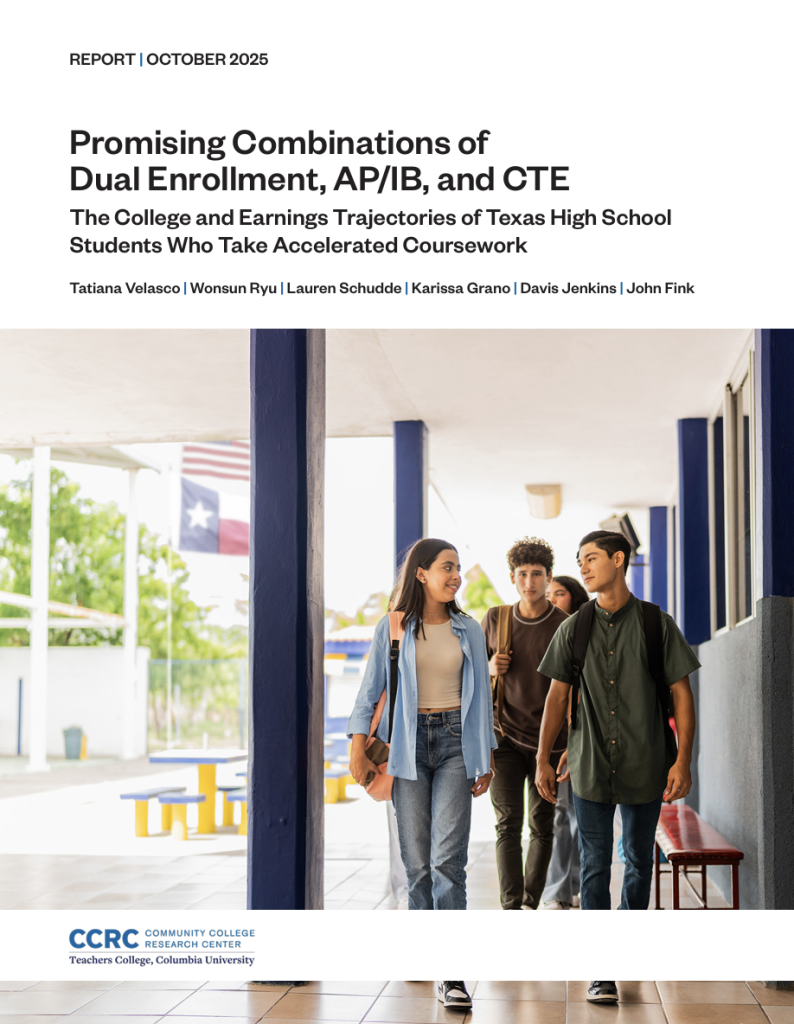
Using data from Texas, this report examines how students combine different types of accelerated coursetaking in high school and how these combinations are associated with students’ subsequent postsecondary attainment and earnings trajectories.
Who Rides Out the Storm? The Immediate Post-College Transition and Its Role in Socioeconomic Earnings Gaps
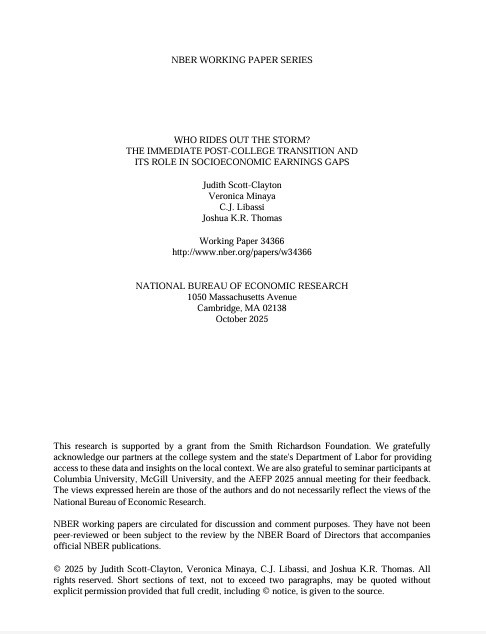
Using administrative data from a large, urban, public college system, this paper documents large gaps in earnings five years after graduation by SES and the extent to which differences in the first job transition can explain these gaps.
